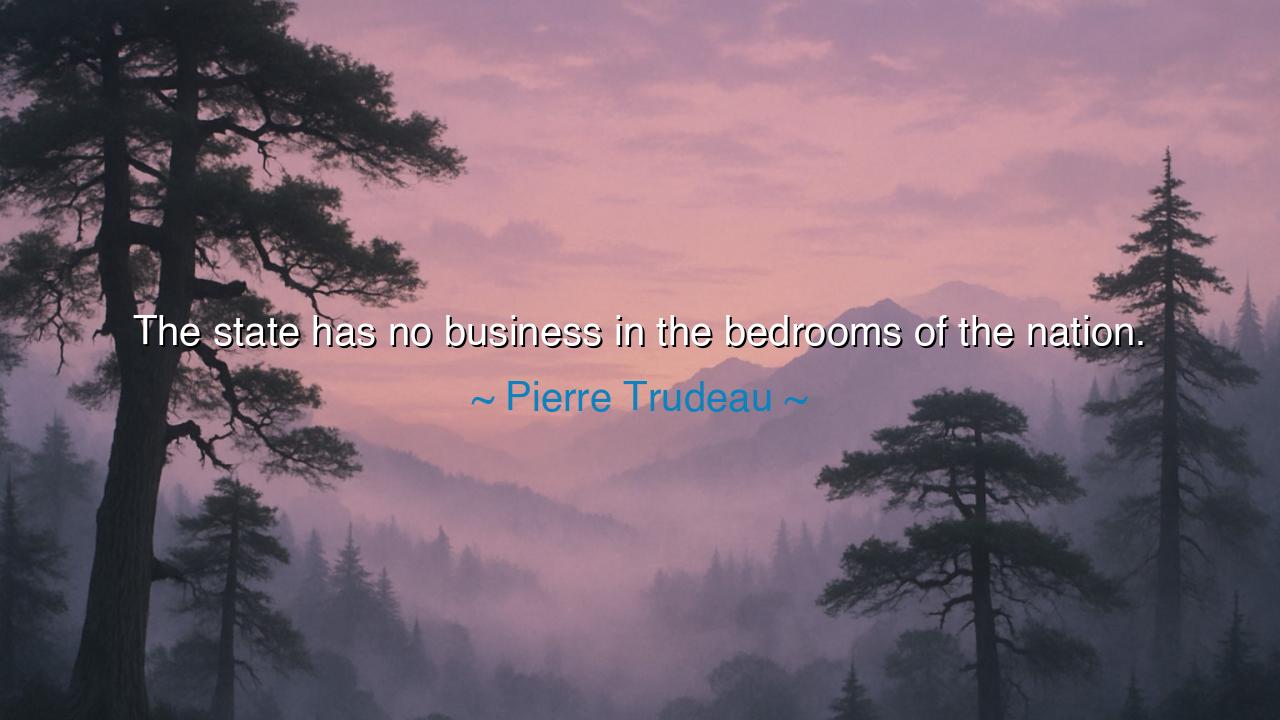
The state has no business in the bedrooms of the nation.






Host: The room feels introspective, with the soft light of the evening casting a warm glow across the space. Outside, the world continues its usual rhythm, but inside, there’s a palpable sense of reflection, as though the conversation is about to touch on the boundaries between personal freedom and societal control. Jeeny sits at the table, her fingers lightly tracing the rim of her cup, her expression thoughtful. Jack stands near the window, arms crossed, watching the street below.
Jeeny: (her voice gentle, yet filled with curiosity) “You ever think about how much of our personal lives are influenced by outside forces? How there are times when the government, society, or even culture tries to control or define things that are really none of their business?”
Jack: (glancing over at her, his voice dry, but intrigued) “Personal freedom and control? Yeah, it’s funny how there are things that should be purely individual—like who we love, how we live—but there’s often some sort of oversight or regulation. What made you think about it?”
Jeeny: (nodding slowly, a small smile forming as she shares her thought) “I was thinking about something Pierre Trudeau said: ‘The state has no business in the bedrooms of the nation.’ It made me reflect on how our personal choices—what we do in the privacy of our own lives—shouldn’t be subject to government intervention. The right to privacy and autonomy is so fundamental to who we are.”
Jack: (pauses, considering her words carefully) “So, he’s saying that the government, or the state, shouldn’t interfere in personal, private matters—especially ones as intimate as our relationships or our sexual lives? That it’s not their place to regulate who we love or how we express that love?”
Jeeny: (smiling more deeply now, her eyes steady as she explains further) “Exactly. Trudeau’s point is that the state has no right to dictate what happens in the privacy of our homes, between consenting adults. What happens in our personal lives, in the most intimate spaces, is beyond the reach of government control. It’s about respecting our individual freedoms and the right to live as we choose.”
Host: Jeeny’s words seem to settle in the room, creating a subtle shift in the conversation about personal rights and governmental overreach. Jack stands still, his expression softening as he processes the deeper message behind Trudeau’s statement. The world outside continues its rhythm, but inside, the conversation feels rooted in a more profound understanding of autonomy and personal freedom.
Jack: (his voice quieter now, almost reflective) “I see what he means. It’s easy to forget how personal freedom is often tied to how much control others have over us. But when the state starts deciding what’s acceptable in our personal lives, we risk losing our autonomy, and that’s where it becomes dangerous.”
Jeeny: (nodding slowly, her voice calm, yet filled with quiet strength) “Exactly. Our personal lives, our private choices, should be ours to make. The government has no place in telling us how to love, how to live, or what happens behind closed doors. Those are decisions for us alone.”
Jack: (pauses, a small smile forming on his face as the idea sinks in) “It’s liberating, isn’t it? To realize that our freedom comes from being able to make our own choices, without fear of interference. Our personal lives should be sacred, free from judgment or regulation.”
Jeeny: (smiling warmly, her voice gentle, yet filled with wisdom) “Exactly. The freedom to choose how we live, who we love, and how we express ourselves is fundamental to our humanity. When the state stays out of those personal areas, it allows us to be who we truly are, without fear of oppression.”
Host: The room feels lighter now, as though the conversation has shifted into a deeper understanding of personal freedom and privacy. Jack turns from the window, his posture more relaxed, his thoughts clearly reflecting on the importance of respecting autonomy and individual rights. Jeeny watches him, content in the realization that true freedom comes from the ability to live without unnecessary interference. The world outside continues its rhythm, but inside, there’s a shared understanding that the state has no place in the bedrooms of the nation—or in the most personal corners of our lives.






AAdministratorAdministrator
Welcome, honored guests. Please leave a comment, we will respond soon